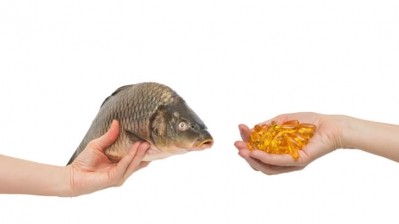Nordic Naturals motion to dismiss consumer deception suit denied

“[T]he Court cannot conclude as a matter of law at this stage that reasonable consumers would not be misled by Defendant’s labeling their products as ‘Naturals’,” the Honorable Nina R. Morrison of the Eastern District of New York wrote in the decision issued on Sept. 28. “Plaintiff has adequately pled that Defendant’s acts were ‘misleading in a material way’.”
In the suit filed on May 31, 2022, plaintiff Natalie Orrico claimed that the “prominent location” of the word “Naturals” front-of-pack is a deceptive, false and misleading representation of the true character of the products since they contain soy lecithin, maltodextrin, riboflavin, thiamine mononitrate, microcrystalline cellulose and pectin, among other non-natural ingredients.
She argued that consumers “lack the meaningful ability to test or independently ascertain or verify whether a product is natural” and “would not know the true nature of the ingredients merely by reading the ingredients label”.
Motion to dismiss
Nordic Naturals countered that it never labeled the products as “all natural” or “100% natural” and therefore no reasonable consumer would be deceived based on the presence of synthetic ingredients simply because the brand name contains the word “Naturals”.
Judge Morrison, however, cited case law to determine that this argument relies on “too fine a distinction”.
“Here, the Court agrees with the numerous other courts that have found this distinction unpersuasive at the motion to dismiss stage,” the decision reads. “Defendants have failed to show, as a matter of law, that while a reasonable consumer would be deceived by an “all natural” or “100% natural” representation, she would not be deceived by a prominent representation of ‘Naturals’ on the label.”
The court also rejected the defense’s contention that the “back label discloses the presence of any synthetic ingredients,” and therefore a reasonable consumer would not think “that Nordic Naturals’ Products are entirely natural.” It also found that the plaintiff alleged sufficient facts for the class action to survive a motion to dismiss for lack of standing.
Commenting independently on the decision, Katie Bond, partner at law firm Keller & Heckman said that “the decision is a disappointment and a clear message that, for better or for worse, companies are going to have to continue to use great caution with ‘natural’ claims – and with this decision, no matter how such claims are used, even as part of a brand name.”
What is natural?
Bond noted that a number of brands have a nod to nature in their names and referenced other “naturals” cases in which defendants prevailed at the motion to dismiss stage.
Last year, a New York court dismissed a long-running suit against Kind Bar, finding that the plaintiffs offered conflicting definitions of the term “natural” and failed to show how a reasonable consumer would be fooled. In Pelayo v. Nestlé USA, Inc. (2013), the plaintiff challenged “all natural” claims for refrigerated, packaged pasta, but the California court decided that “the reasonable consumer is aware that Buitoni Pastas are not springing fully formed from Ravioli trees and Tortellini bushes."
For the Nordic Naturals case, Bond found it striking that the complaint was so expansive as to claim that the brand name conveys to consumers that the products contain only natural ingredients.
“That’s surprising for many reasons, not the least of which is that there’s still no set regulatory definition or understanding of what a ‘natural’ food or supplement might mean,” she said. “Some courts have suggested it might mean ‘sourced from nature’ and ‘minimally processed’ – but those requirements are likewise lightly defined or understood.”
She added that she is not convinced a reasonable consumer assumes a product on a store shelf is equivalent to something pulled from the ground, with no appreciable processing or ingredients geared to, for instance, shelf-life.
In 2015, the Food and Drug Administration solicited public comments to create a definition for the term “natural” on food labeling but has only issued guidance thus far.
“The battle to define natural in the courts is likely futile, especially given the failure of multiple national, and even governmental, attempts,” Karen Howard, CEO & executive director at Organic & Natural Health Association, told NutraIngredients-USA. “The premise of this case challenges the company’s right to use its corporate long-standing brand name.”
Nordic Naturals did not respond to a request for comment in time for publication.









